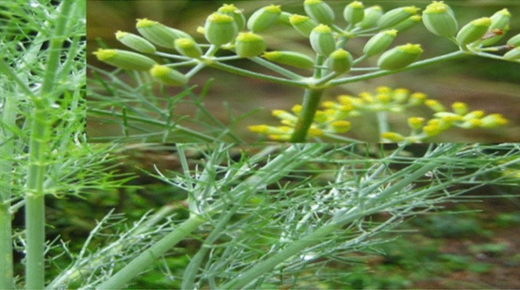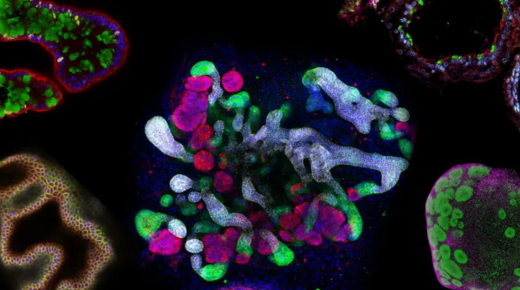
1. Introduction to Medicinal Plants
Medicinal plants have been used for centuries in traditional medicine practices around the world. They offer a natural source of healing and treatment for various ailments. The International Journal of Phytomedicines and Related Industries explores the latest research and developments in this field, providing valuable insights for scientists, healthcare professionals, and herbal practitioners.
2. Importance of Phytomedicines
Phytomedicines, derived from plants, play a crucial role in modern medicine. They offer alternative treatments with fewer side effects compared to synthetic drugs. The journal focuses on the significance of these natural remedies and their potential to treat a wide range of health conditions.
3. Historical Uses of Medicinal Plants
Throughout history, medicinal plants have been used in various cultures for healing purposes. Ancient civilizations, such as the Egyptians, Greeks, and Chinese, documented the use of plants for medicinal purposes. The journal delves into these historical uses, providing a rich context for contemporary research.
4. Ethnobotany and Traditional Knowledge
Ethnobotany studies the relationship between people and plants, focusing on traditional knowledge and practices. The journal highlights the importance of preserving this knowledge, which can provide valuable insights into the development of new phytomedicines.
5. Phytochemical Research
Phytochemicals are bioactive compounds found in plants that contribute to their medicinal properties. The journal publishes research on the identification, isolation, and characterization of these compounds, which are essential for understanding the therapeutic potential of medicinal plants.
6. Pharmacological Properties of Medicinal Plants
Many medicinal plants possess pharmacological properties that can treat various diseases. The journal explores studies on the anti-inflammatory, antimicrobial, antioxidant, and anticancer properties of these plants, showcasing their potential in modern medicine.
7. Clinical Trials and Human Studies
Clinical trials are essential for validating the efficacy and safety of phytomedicines. The journal features articles on human studies and clinical trials that assess the therapeutic benefits of medicinal plants, bridging the gap between traditional medicine and modern clinical practice.
8. Quality Control and Standardization
Quality control and standardization are critical in ensuring the safety and efficacy of phytomedicines. The journal discusses methods for standardizing plant extracts and developing quality control protocols to maintain consistency in herbal products.
9. Sustainable Harvesting and Conservation
Sustainable harvesting and conservation of medicinal plants are vital for preserving biodiversity and ensuring a continuous supply of these valuable resources. The journal addresses the challenges and strategies for sustainable harvesting and conservation efforts.
10. Cultivation of Medicinal Plants
Cultivating medicinal plants is essential to meet the growing demand for phytomedicines. The journal provides insights into modern agricultural practices, including organic farming, to cultivate high-quality medicinal plants.
11. Advances in Extraction Techniques
Extraction techniques are crucial for obtaining bioactive compounds from medicinal plants. The journal covers advancements in extraction methods, such as supercritical fluid extraction and microwave-assisted extraction, which enhance the yield and purity of plant extracts.
12. Formulation and Development of Phytomedicines
The development of phytomedicines involves formulating plant extracts into suitable dosage forms. The journal discusses innovative formulation techniques, including encapsulation and nanotechnology, to improve the delivery and bioavailability of phytomedicines.
13. Regulatory Aspects of Phytomedicines
Regulatory frameworks are essential to ensure the safety and efficacy of phytomedicines. The journal highlights the regulatory aspects, including guidelines and policies, that govern the approval and marketing of herbal products in different countries.
14. Integration of Phytomedicine into Healthcare
Integrating phytomedicine into mainstream healthcare systems can enhance treatment options for patients. The journal explores strategies for integrating these natural remedies into conventional medical practice, promoting a holistic approach to healthcare.
15. Challenges in Phytomedicine Research
Phytomedicine research faces several challenges, including variability in plant composition and limited funding. The journal discusses these challenges and offers solutions to overcome them, encouraging further research and development in this field.
16. Case Studies of Successful Phytomedicines
Case studies of successful phytomedicines provide practical examples of their therapeutic potential. The journal features detailed accounts of specific medicinal plants that have been effectively used to treat various health conditions.
17. Role of Biotechnology in Phytomedicine
Biotechnology plays a significant role in advancing phytomedicine research. The journal covers topics such as genetic engineering, tissue culture, and molecular biology techniques that enhance the production and quality of medicinal plant extracts.
18. Collaborations and Interdisciplinary Research
Collaborations between researchers, institutions, and industries are crucial for advancing phytomedicine. The journal emphasizes the importance of interdisciplinary research and partnerships to foster innovation and development in this field.
19. Future Prospects of Phytomedicine
The future of phytomedicine is promising, with ongoing research uncovering new therapeutic potentials of medicinal plants. The journal provides a forward-looking perspective on the future trends and advancements in phytomedicine research.
20. Education and Training in Phytomedicine
Education and training are essential to equip future researchers and healthcare professionals with knowledge of phytomedicine. The journal discusses educational programs and training opportunities that focus on the study and application of medicinal plants.
21. Consumer Awareness and Acceptance
Consumer awareness and acceptance are critical for the widespread adoption of phytomedicines. The journal explores strategies to educate the public about the benefits and safety of using medicinal plants as alternative treatments.
22. Economic Impact of Phytomedicine
The phytomedicine industry has a significant economic impact, providing livelihood opportunities and contributing to the global economy. The journal analyzes the economic aspects of the phytomedicine industry, including market trends and growth potential.
23. Ethical Considerations in Phytomedicine Research
Ethical considerations are paramount in phytomedicine research, ensuring the responsible use of plant resources and respect for traditional knowledge. The journal addresses ethical issues and promotes best practices in conducting phytomedicine research.
24. Global Trends in Phytomedicine
Phytomedicine is a global phenomenon, with different regions contributing unique plants and traditional knowledge. The journal highlights global trends in phytomedicine, showcasing the diversity and richness of medicinal plants from around the world.
25. Conclusion: The Role of IJPR in Advancing Phytomedicine
The International Journal of Phytomedicines and Related Industries plays a crucial role in advancing the field of phytomedicine. By providing a platform for high-quality research and fostering international collaboration, the journal contributes to the continuous development and integration of medicinal plants into modern healthcare.




